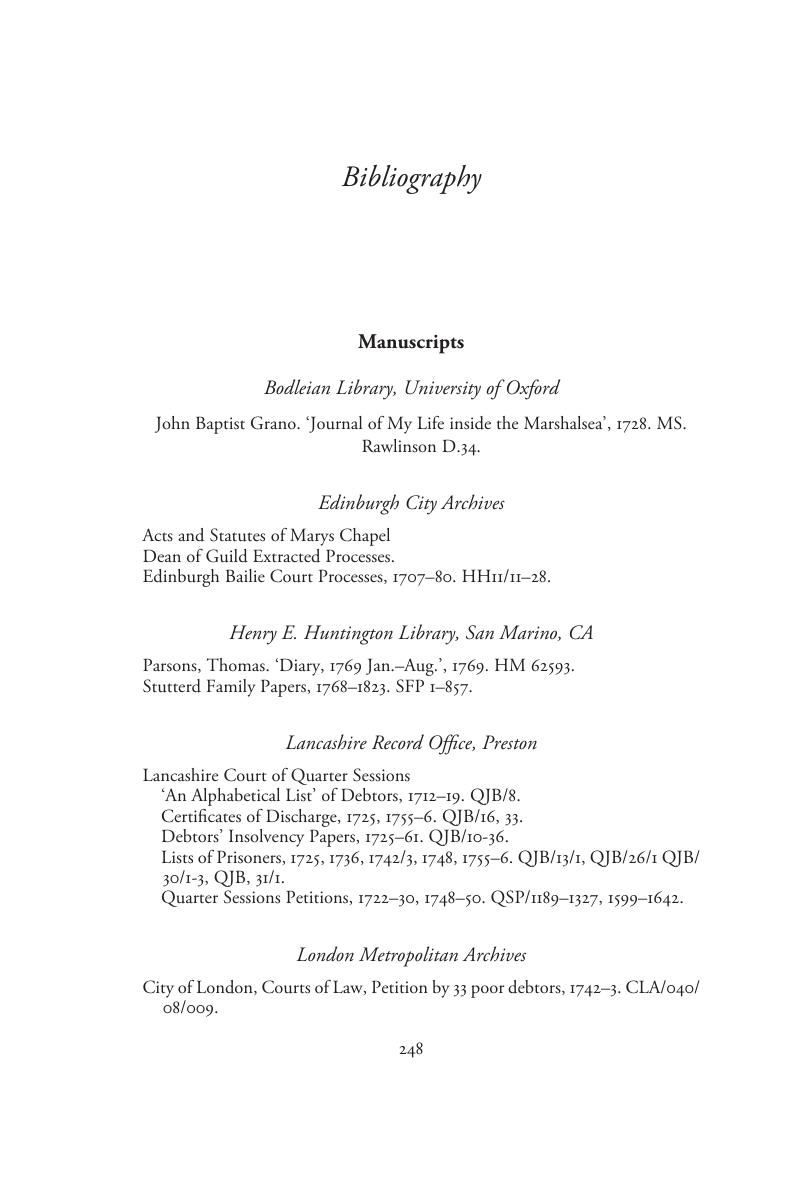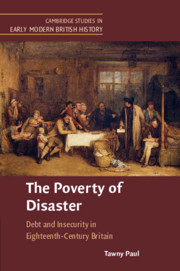Book contents
Bibliography
Published online by Cambridge University Press: 27 September 2019
Summary

- Type
- Chapter
- Information
- The Poverty of DisasterDebt and Insecurity in Eighteenth-Century Britain, pp. 248 - 276Publisher: Cambridge University PressPrint publication year: 2019

